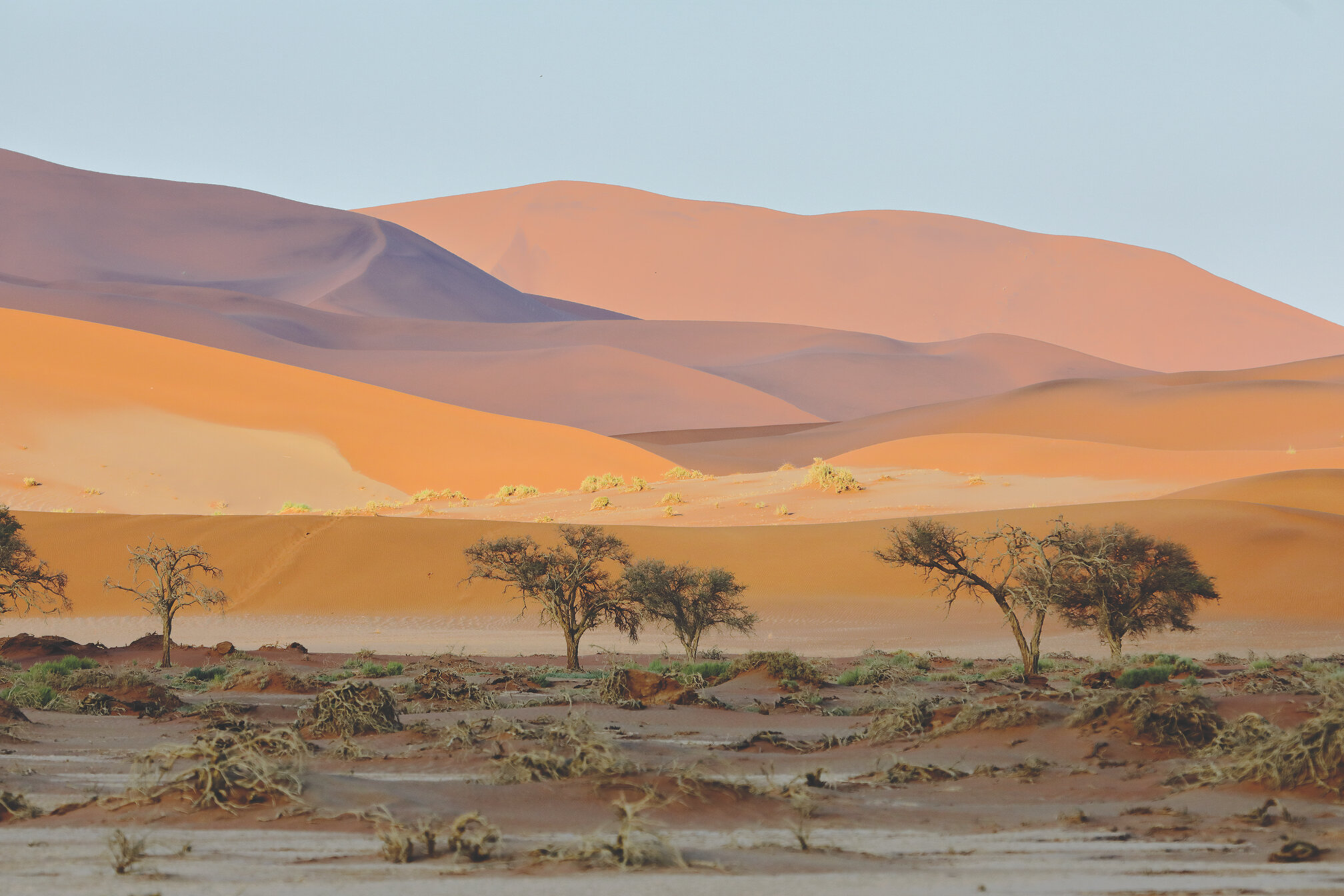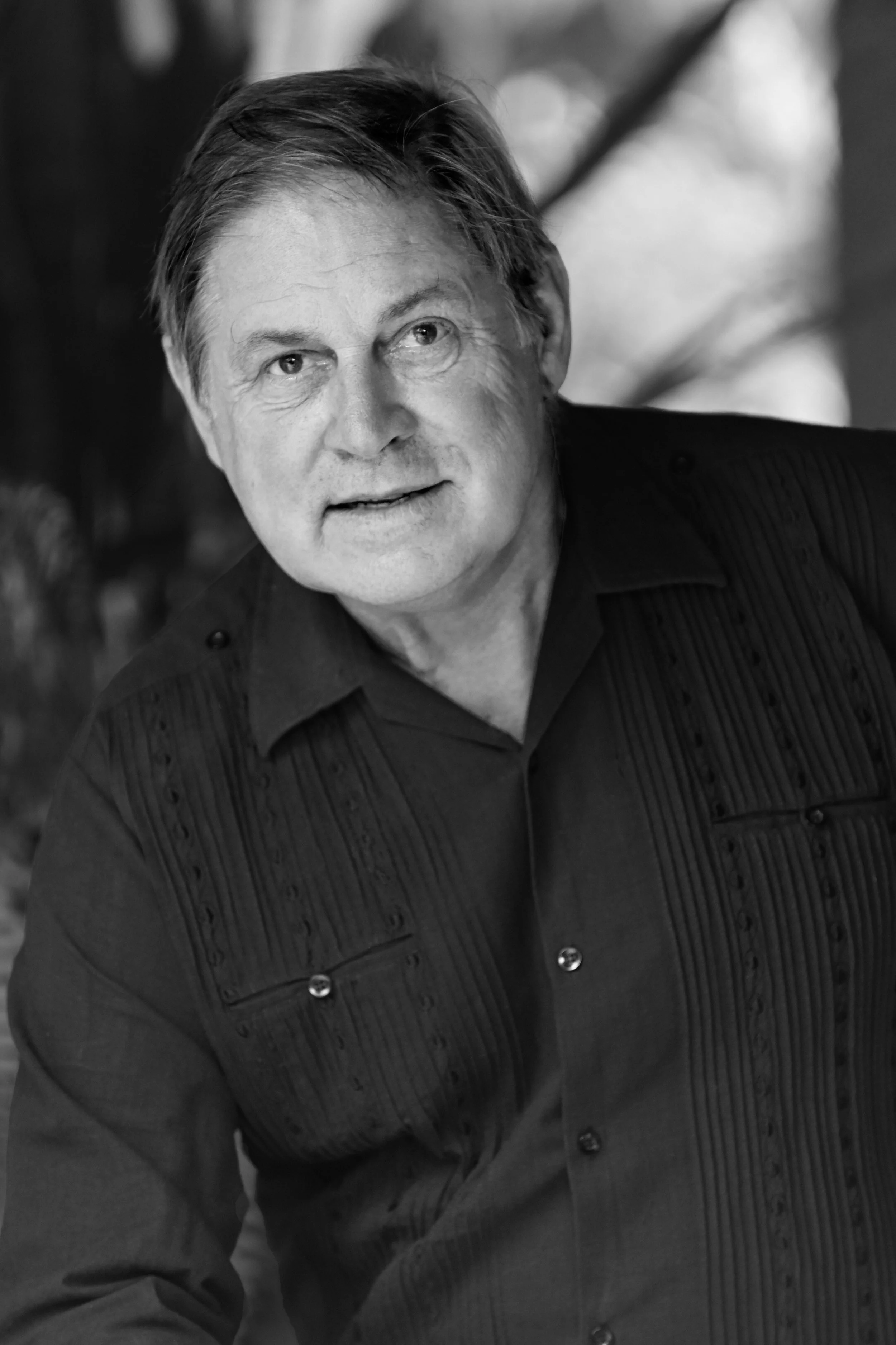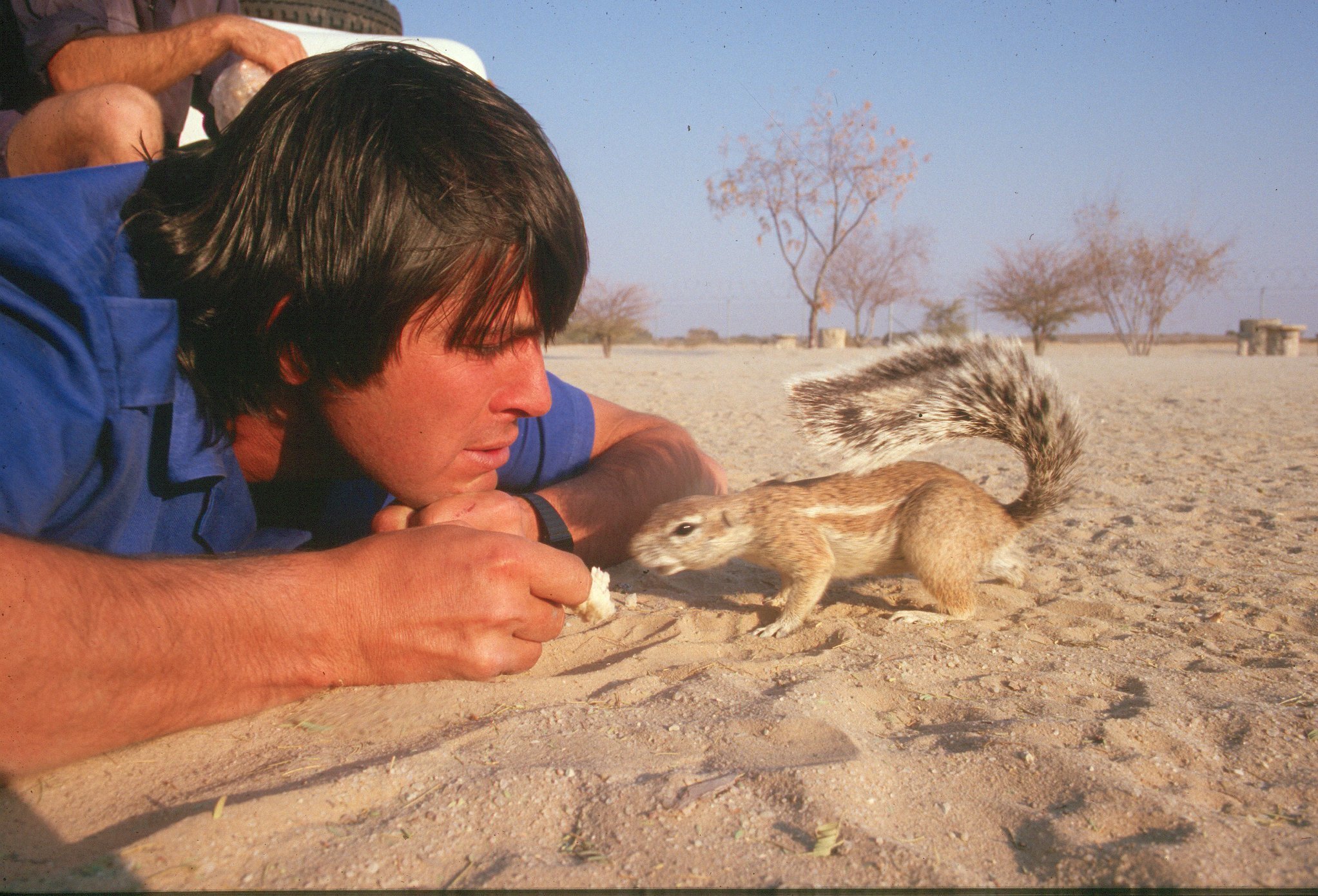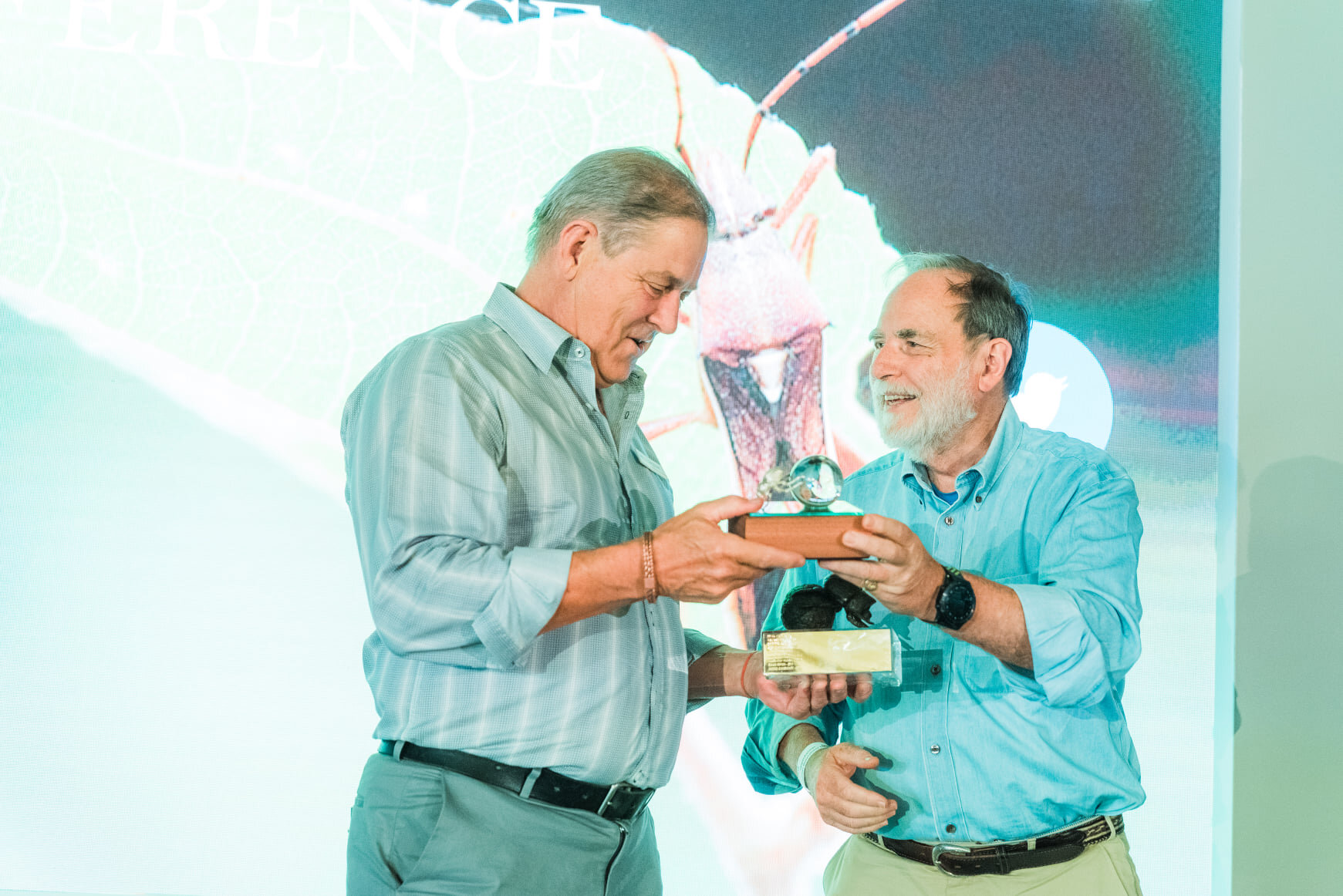
Barry Lovegrove 5 December 1956 - 6 March 2022
Please note Barry’s email address @ukzn has been discontinued. Please contact Chris at bglove@mweb.co.za for any queries.
Barry Lovegrove
5 December 1956 - 6 March 2022
Barry Gordon Lovegrove was born in Harare, Zimbabwe, in December 1956. He is the second eldest of six brothers. His family emigrated to South Africa when Barry was 6 years old. The family settled in Cape Town where Barry attended the South African College School (SACS) primary and secondary schools in Newlands. He studied zoology at the University of Cape Town (UCT) and obtained his PhD specialising in animal energetics under the supervision of Gideon Louw in 1987.
After a short spell of teaching at UCT, Barry undertook a post-doctorate program in the laboratory of Ken Nagy at the University of California, Los Angeles in 1988. There he also interacted with physiologists “Bart” Batholomew and John Lighton. In 1989 Barry undertook a post-doctoral program as an Alexander von Humboldt Fellow in the laboratory of Gerhard Heldmaier, Marburg, Germany.
Barry returned to southern Africa in 1991 and spent nine months writing the Living Deserts of Southern Africa in Cape Town. In 1992 he secured his first and only permanent academic position at the former University of Natal, now the University of KwaZulu-Natal. He retired aged 60 in 2016 but retained Emeritus Professor status.
As an A-rated NRF scientist Barry has published around 100 scientific papers and book chapters. He is also the author of Fires of Life: Endothermy in Birds and Mammals (Yale 2019). The Living Deserts of Southern Africa has also been revised (Penguin Random House, Struik Nature, 2021).
Click below for more
A celebration in memory of Barry Lovegrove was held on 19 March 2022 at 12 noon.
The recorded live-stream view is available below or click here.
Barry Lovegrove 5 December 1956 - 6 March 2022
A tribute
With deep sorrow I share news of the passing Barry Lovegrove, my partner of 28 years, who died suddenly last Sunday morning. Barry was an extraordinary individual who will be remembered by everyone who met him
An academic and world-class researcher, Professor Emeritus at UKZN and A-rated NRF scientist, Barry published around 100 peer-reviewed scientific papers and book chapters. He was the author of 'Fires of Life: Endothermy in Birds and Mammals' (Yale 2019), rated one of the top five Best Science Books of 2019 by Open Letters Review. He was at the fore-front of his field internationally, publishing in the most respected international journals. His 'Living Deserts of Southern Africa’, a project that spanned his career from the first publication in 1993 (winner of the 1995 University of Natal Book Prize) to the launch of the revised edition September 2021 (Penguin -Random House)), has made a unique contribution to nature enthusiasts, desert travellers and the science community. This iconic book elucidates the numerous ways plants and animals adapt to harsh environments, offering an intimate understanding of the intricacies of desert ecology.
Barry also created a magnificent home and garden for us, Casa Mexicana in Pietermaritzburg. Through years of back-breaking work, he built, landscaped and transformed every square inch of the property with his own hands. This has been open to public visitors at Indigenous Open Gardens and at the numerous concerts I have presented for over 20 years. Our home has also functioned as a space for my fellow musicians and his students, local and international, to be hosted, rehearse and perform. Being able to assist and support my career in every possible way gave Barry great pleasure, as did my being able to do the same for him.
In the last 18 months Barry has worked tirelessly behind the scenes in more than 200 livestreams of my online performances. Framing beautiful images with his deft camerawork and switching from view to view in sympathetic response to my piano playing, his role was managed so seamlessly that many are unaware of his presence.
To many Barry seemed “larger than life”, living his life 'his way', fully and without reservation. He was a truly man of infinite ability. Whether it be groundbreaking scientific research, writing books, SCUBA diving, painting in oils, ceramics and pottery, photography, making tiles and terracotta pots, wood work, metal work, stained-glass work, growing and collecting orchids and rare indigenous plectranthus, cooking mouth-watering curries, off-road motor bike riding, singing his favourite songs with and to anyone who’d care to listen, and most of all, conversing, there seemed to be no endeavour he could not undertake, complete, and be exceptional at it. He was a perfectionist and inventive, setting up a vodka still during lockdown when alcohol was banned and installing solar panels to survive load-shedding and to secure my livestream broadcasts.
Barry was very down to earth, open and unpretentious and loved to share his ideas. He took delight in making the most complex concepts accessible and equally comfortable with everyone. He welcomed so many people into our home, with his inimitable warmth, broad smile and irreverent and quick sense of humour. In the words on a friend's son Jonathan Inglis (17): "When Barry spoke I wanted to listen carefully, because I knew what he had to say was important, and the whole world should be listening.”
His legacy will be continued in particular by a handful of doctoral students whom he encouraged, mentored and supported with unprecedented enthusiasm and commitment.
Since the launch of his revised 'Living Deserts of Southern Africa’ last September he seems to have taken a more reflective approach to life, spending time reflecting, enjoying observing the quirks and sharing space with our beloved miniature dachshunds, sleeping and even taking up the practice of yoga. Barry seemed deeply content, especially since we finally married in May 2021, something that he said he had really wanted. He was proud to show his gold wedding ring to everyone. It seemed to me he allowed himself time off, possibly for the first time in his life. His recent trip to the Karoo, Kalahari and Namaqualand to make videos intended to extended the reach of ‘The Living Deserts of Southern Africa' allowed him to visit people of significance to him, taking him to many places that were meaningful to him and ultimately into nature in its most unspoiled, where he was in his element. For a man who had travelled to over thirty countries, this trip was the last he would make. Barry was diagnosed with a rare type of leukaemia two weeks ago
Barry was admitted to Mediclinic on Friday morning after a restless night, with shortness of breath and a cough. He was admitted to ICU and treated for a severe chest infection, which caused a lack of Oxygen, ultimately causing heart failure cardiac arrest in the early hours of Sunday morning, from which, in-spite of the best efforts of the ICU team, he could not be resuscitated.
And now, my life now seems empty without him.
He will also be missed by four of his surviving five bothers - Guy, Donald, Keith and Colin and their families, his close friends, near and far, those who visited Casa Mexicana - to stay, for a concert, dinner or party, those who read his books, his many students and those who pondered his research, and those many who were lucky enough to be bathed in the extraordinary life force of his passion, vitality, warmth, vast knowledge, free-thinking intellect, humour and enthusiasm. A unique and full life, extraordinarily well lived.
Christopher Duigan
Pietermaritzburg, March 2022
Barry Lovegrove 5 December 1956 - 6 March 2022
17 March 2022
FINDING LIFE IN UNEXPECTED PLACES: A TRIBUTE TO A PASSIONATE SCIENTIST AND COMMUNICATOR OF SCIENCE
Robert Inglis is Director of Jive Media Africa, science communication partner to Oppenheimer Generations Research and Conservation. He writes in his personal capacity.
If Barry Lovegrove’s life demonstrated one thing, it is that science and art are not mutually exclusive realms. They are simply different perspectives that when brought together create a powerful way to reach into people’s lives and change the world. Friend and colleague, Robert Inglis, considers the legacy of an extraordinary scientist.
Passion is not always considered appropriate in ‘good’ science. After all, doesn’t the scientific method require scientists to be ‘dispassionate’ – to leave their emotions at the door, to ensure that evidence-based findings can be drawn rationally and logically from data?
Barry Lovegrove was a passionate man. He was also, undoubtedly, a very good scientist. In his 25-year scientific career he published over 100 papers in high impact journals, received an A-Rating from the National Research Foundation demonstrating unequivocal validation by his peers as a leading international scholar in his field, and presented (according to Yale University Press) a “groundbreaking argument” for how we (or rather, our ancestors) became warm-blooded in his popular scientific book, The Fires of Life.
But if we focus only on his purely scientific work, we risk missing a more valuable contribution. Barry’s real passion was for engaging people, and for revealing to them the beauty and wonder of the world around them. In fulfilling this passion, Barry can be considered not merely a good scientist, but a great one.
Art and science – bridging worlds
Barry was a man of diverse talents and skills and there was little that he set his mind to and didn’t achieve. He was an incurable creative and a lover of the beautiful, curious and surprising.
A visit to the home in Pietermaritzburg created by Barry and his partner, virtuoso pianist Christopher Duigan, is a feast for the senses. A terraced garden, painstakingly landscaped and bursting with rare Plectranthus cascades down the hillside. Inside, exquisite orchids spill over Barry’s hand-made terracotta pots amid a riotously colourful interior adorned with his own exuberant creations: art, woodwork, metal work and hand-made and painted ceramic tiles.
And with remarkable warmth, generosity and openness of spirit, Barry welcomed visitors into this sumptuous space. Hence, a wide array of people gathered and connected here. Musicians, artists, scientists and students came to create, to learn, to share and to enjoy one another’s company.
With the onset of Covid-19, and the necessary cancellation of Christopher’s live piano performances, Barry turned his energy to supporting Christopher’s online concerts. Over the past 18 months Barry worked tirelessly, and quietly, behind the scenes to deliver more than
200 livestreams. His technical skill and creativity shone through this work, framing beautiful tableaus and cutting between them in sympathetic response to the piano playing. The videos remain online and are a testimony to his aesthetic sensitivities and to the joy and pleasure Barry gained from sharing something of beauty with the world.
Barry’s passion for communicating was palpable. On hearing of his passing, my son responded “When Barry spoke I wanted to listen carefully, because I knew what he had to say was important, and the whole world should be listening.” And it was his passion for sharing the wonder of the world which compelled him to undertake his writing and book publishing work and to mentor young researchers, for which he will arguably be best remembered.
The Living Deserts of Southern Africa
In the year preceding his death, Barry Gordon Lovegrove finally completed a labour of love which had effectively spanned his entire academic career. The Living Deserts of Southern Africa took the form of a visual field guide to the desert regions of southern Africa, and the most recent edition, which Barry was thrilled to have the opportunity to complete in his retirement, was an update of a book which he had produced some 28 years earlier.
The original book was inspired by The Living Shores of southern Africa by Emeritus Professor George Branch, and Barry’s supervisor and mentor, Professor Gideon Louw at the University of Cape Town, also a physiologist and writer of popular science and academic books about the adaptations of desert animals. The book was published in 1993 and elucidated the many ways that plants and animals adapt to harsh environments, offering an intimate understanding of the intricacies of desert ecology.
The book would not have come about, had it not been for an unfortunate (or so it seemed at the time) series of events which unfolded when, returning to South Africa after completing a Humboldt postdoctoral research fellowship in Germany and witnessing the fall of the Berlin Wall in 1989, Barry returned to discover that his promised research funding had been withdrawn. He found himself with a PhD but no job, and so with a little prompting set off to follow the footsteps of his supervisor and mentor into the desert and into a new life.
The impetus for undertaking the revision of the book came from the insistent promptings of Dr Duncan MacFadyen, Head of Oppenheimer Generations Research and Conservation, who saw the incredible potential of the book to capture audiences with the significance of the desert regions of southern Africa. Barry was humbled by the generous contribution to the book by Strilli and Nicki Oppenheimer, which allowed him to travel back to the deserts he had fallen in love with in the 80s.
What Barry did not know when he started this rewrite, and discovered to his great delight on retracing his steps 28 years later, was that in the intervening years the book he had written had become a ‘holy writ’ for those whose lives are touched by deserts – tourist guides, reserve managers, researchers and students.
Facing an uncertain future
Barry was not always going to be a scientist. He grew up in difficult family circumstances on a farm in Zimbabwe, and apparently spent much of his time outside in wild spaces, discovering and exploring. His family moved to Cape Town, and it will surprise many to learn that he failed his matric at SACS school, following which he took on a number of roles, including a traveling salesman. However, when he realised that his contemporaries were set to achieve more in their lives, and with support from his school friends, particularly those from the Jewish community who stayed close throughout his life, he signed up for night school where he improved his matric and secured a place at the University of Cape Town. In his first year he won the class medal for zoology. His eyes had been opened, and suddenly he found a space where he could discover and explore the wildness of his childhood through a new perspective – that of science. And in so doing he discovered his vocation – if he could gain so much from science, surely others could too.
Perhaps it was this experience, and the mentorship he received under Gideon Louw, which led him to being such a devoted guide to a host of young students who have excelled in their chosen careers and are testament to his inspired supervision and training. After his retirement Barry stayed on as Emeritus Professor at the University of KwaZulu Natal, reflecting his ongoing commitment to inspiring and supporting the next generation of researchers.
However, as with all things worthwhile, following a passion is not without its low points. I only recall seeing Barry deeply sad on one occasion, and it was when he returned earlier than planned from a photographic field trip to the Ai-|Ais/Richtersveld Transfrontier Park in the far Northern Cape region where he was gathering material for his book. Here, he had been dumbfounded by the crippling effects of a nine-year drought and spoke of plants which he had photographed on his previous visit turning to dust under his boots.
He later wrote “It was not the succulent Eden that I once knew and cherished. Eighty to ninety percent of the perennial vegetation was dead.” Barry goes on to describe, with remarkable clarity for someone who is not a climatologist, how changing weather patterns have impacted the flora of this region over millennia, first prompting the diversity that existed there, and now, due to anthropogenic climate change, the possibility of its impending extinction.
He was also saddened to learn, from those frantically trying to hide and save them, about the devastating poaching of karoo succulents of the genus Conophytum. These tiny plants have become the target of poachers who, due to the highly localised distribution of species, are capable of removing whole populations at once, resulting in immediate extinction in the wild. He detailed these discoveries in his book, but also reported on them at the Oppenheimer Research Conference where he gained best presenter award for his plenary sharing his perspective on the tragedy of extinction and the ingenuity of life.
However, in recent months since the publication of The Living Deserts, those who knew Barry well, have commented on a peacefulness which seemed to have settled on him. On more than one occasion Barry would engage his friends in deeply existential conversations encouraging them to think beyond current careers and circumstances into what they really wanted to achieve with their lives and ponder such questions as “what does love mean to you?” In response to his own question, he spoke of his partner Chris, whom he had married a few months prior, and of which he was very proud.
Barry was diagnosed with hairy cell leukaemia in late February but passed away on Sunday the 6th of March 2022 from pneumonia before he could start treatment.
Christopher reflects that both The Living Deserts and The Fires of Life represent metaphors for Barry’s life – and for our own. Amid harshness and despite tough realities, there are always treasures to be found; life finds a way. Life and joy and beauty thrive in the most unlikely places. It’s for us to keep noticing that and to celebrate it with the passion that keeps burning.
Well, where do I start? I first encountered Barry’s work when I was at school, when I purchased my first copy of Living Deserts of Southern Africa. Many a night was spent reading the chapters repeatedly, thinking to myself what a life Dr Lovegrove must live. Adventure, amazing creatures, fascinating landscapes, and unique plants. The book practically inspired me to go into science. It was some years later, at a Mammal Research Institute conference, that I met Barry Lovegrove in person. He was brilliant, and even more dynamic, opinionated and engaging than expected. He was a larger-than-life personality. His diverse views, enthusiasm and great interest in the natural world intrigued me. Here began my personal journey with Barry. Over the years I regularly reached out for his opinions and ideas, of which Barry was never short of. Never was he too busy and was always intimately engaged and enthusiastic. He helped me carve out numerous research programmes and implement many a successful project on various Oppenheimer properties. Some years later, Barry was invited as a plenary to the Oppenheimer research conference, where he blew everyone “socks-off”. I constantly nagged Barry to revise the book I loved so much, and then out of print. I offered him trips to Tswalu Kalahari as encouragement. One day, he called saying he was hugely busy, but would make time to revise the Living Deserts of South Africa. I was ecstatic. He would often call from Tswalu, from the dunes, looking for the perfect photograph, and when he didn’t get, would insist a return visit was necessary. I was absolutely delighted when the book was finally published and received my first copy. It was better and more than I had ever hoped for. I had the great privileged of interviewing Barry on a webinar for the book, which was rather intimidating questioning my hero in a public space. Barry was informative, fun and his usually charming self. My heart is serious sore for the loss of Barry, but I am delighted to have had the many opportunities to engage with this brilliant man. It would be wonderful to really assess how many lives he touched in so many ways. No doubt, his vision, passion, and lustier for life, will live on for many years to come. The world feels emptier without him. My sincerely condolences to Christopher, and to Barry’s family. Rest in Peace dear Barry.
Duncan MacFadyen
16th March 2022
I first met Barry Lovegrove at the 10th Oppenheimer Research Conference in 2019, where I was immensely impressed by his outstanding knowledge of nature, and specifically the succulent flora of Namaqualand. Barry was passionate, enthusiastic and “connected the dots”, while also providing an informative, well-researched, and detailed talk on the poaching of plants in this region. We were so impressed, Barry received the Oppenheimer award for best paper presented at the conference. We then decided to support Barry with the publication of the revised edition of Living Deserts of Southern Africa, a book which captures the lives and adaptions of desert living organisms. In the nearly three decades since the publication of the first edition of Living Deserts, there had been an enormous amount of change in terms of degradation in the deserts of southern Africa. His book translated science into a style that is readable to all, including academics. He included a large amount of new research which had been subsequently published in the book, adding to our understanding of the function, status, health and, perhaps most importantly, the future of these arid zones. The revised book is outstanding. Barry’s contribution to science, nature, and especially the arid area will live on through his numerous publications and the students which he has trained over many years. Barry was clearly Larger than life, dynamic, and someone who lived life to the full. Barry was an extraordinary individual who certainly made his mark on history. We are deeply saddened by Barry’s death and have lost a real giant in the environmental world. Our sincere condolences to Christopher and the rest of his family and friends.
Nicky and Strilli Oppenheimer
16th March 2022
Barry Lovegrove - author of The Living Deserts of Southern Africa and Fires of Life
The School of Life Sciences was deeply saddened to learn of the untimely passing of Prof Barry Lovegrove on Sunday 6 March 2022, after a short illness.
Barry Gordon Lovegrove was born in Harare, Zimbabwe, on 5 December 1956 and is the second eldest of six brothers. The family emigrated to South Africa when he was 6 years old, settling in Cape Town where he attended the South African College School (SACS) in Newlands for his primary and secondary school education. He studied zoology at the University of Cape Town (UCT) and obtained his PhD in 1987, specialising in animal energetics, under the supervision of Prof Gideon Louw.
Following a short spell of teaching at UCT, Barry undertook a post-doctoral fellowhsip at the University of California, Los Angeles in 1988, followed by a post-doctoral fellowhsip as an Alexander von Humboldt Fellow in Marburg, Germany. Upon his return to South Africa, Barry joined the then Department of Botany and Zoology (University of Natal) as a Lecturer on the Pietermaritzburg campus in April 1992 and remained with the institution until his retirement in 2016. During this time, Barry rose to the rank of Full Professor, which was indicative of his prowess as both a highly skilled teacher and an internationally acclaimed researcher. Indeed, Barry boasted a significant international profile in the field of evolutionary animal physiology and was recognised as such in 2018 when he was awarded an A-rating from the National Research Foundation of South Africa. During his illustrious scientific career, Barry published more than 100 scientfic papers in high-end international journals and attained a highly commendable Hirsch Index of 41, reflecting the impact of his papers in his field. In his retirement, he maintained links with the University as Professor Emeritus. In addition, Barry published two books, namely the Living Deserts of Southern Africa (1994 and revised in 2021) and Fires of Life: Endothermy in Birds and Mammals (2019).
Barry was a highly skilled, passionate and entertaining teacher, as will be attested by the many students whom he taught over the years. As a protagonist of research-based learning, Barry integated the content of his courses with examples from his own research and experience. Barry demanded high standards, both from himself and from his undegraduate and postgraduate students. While a few found this somewhat intimidating, those who worked closely with him benefitted immensely from this interaction, with the realization that they were working with one of the world’s best in the field. Indeed, Barry’s post-graduate students have excelled in their chosen careers and are testament to his inspired supervision and training.
Barry was a man of many skills which extended well beyond the academic and scientific domain. He undertook painting, pottery and several building and renovation projects that turned his house in Montgomery Drive into a work of art. Those who have visited Barry’s house during the Pietermaritzburg Open Indigenous Gardens events or Music Revival concerts, will attest to this. Barry’s artistic skills were also evident at his 60th birthday celebration, when he entertained guests as a lead singer during a performance by the local band “the Hairy Legged Lentil Eaters”. In recent years, Barry turned his hand to videography and, supplemented by his photographic and newly acquired editing skills, started producing short videos based on the chapters of his Living Deserts books.
The School of Life Sciences wishes to convey our deepest condolences to Barry’s legal partner Christopher Duigan and to his close family, and wish them strength during this very difficult time. We acknowledge Barry for his substantial contributions, not only to our institution, but also to the global scientifc community, and for enriching our lives with his passion, character and presence. Barry lived life to the full and we are immensely grateful for the time that we were able to share with him.
May his soul rest in peace.
Issued by the School of Life Sciences, UKZN
Barry did the field work for his PhD in the Kalahari Desert. (1985)
Barry lovded to sing Neil Young and Van Morrison songs, and others ...
Barry was a A-rated NRF scientist. Here he is receiving an award from Niki Oppenheimer for 'Best Speaker' at the 2019 Oppenheimer Research Conference.
Barry was a passionate BMW 1200 GSA enthusiast.
He was a avid dachshund fan and looked after Zoe, Sandy, Lulu, Nicki, Lil’ Lucy, Frida and Wendy-pop.
Barry was a keen photographer and gardener. His indigenous garden at his home in Pietermaritzburg has been featured on several ‘Open Gardens’ and on national TV.











